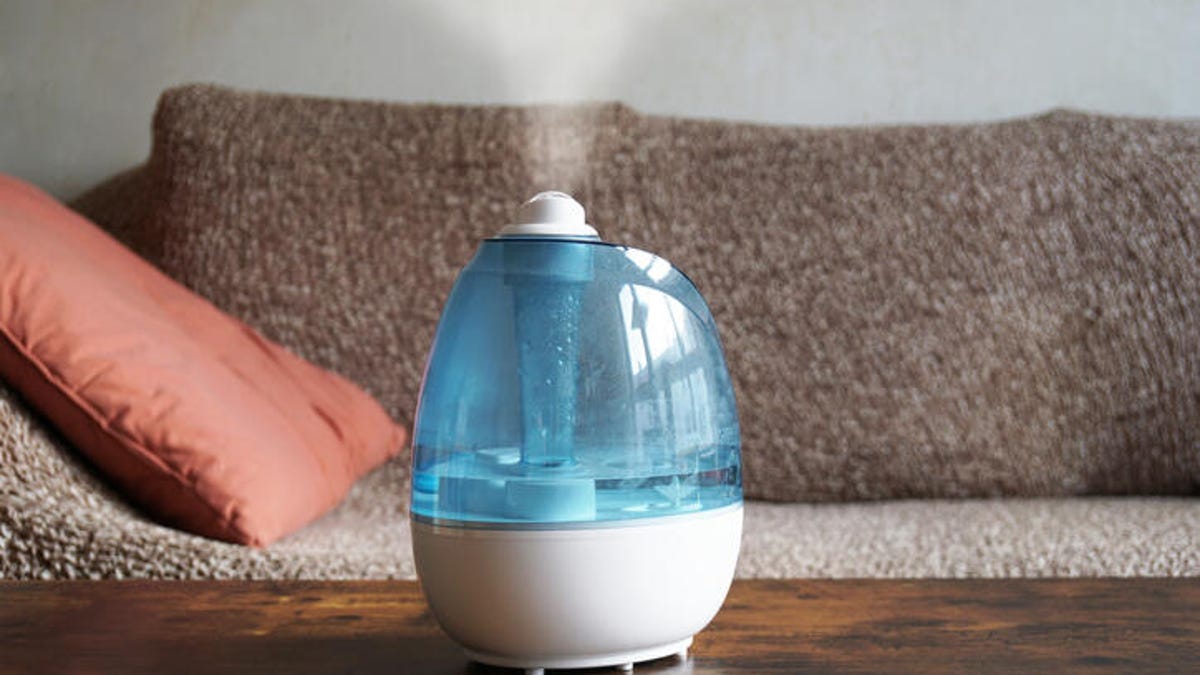 Why You Can Trust CNET
Why You Can Trust CNET The top signs you need to get a humidifier
These machines can be the simple fix for all sorts of symptoms.

Humidifiers can help ease annoying symptoms caused by dry harsh air.
Unless you're one of the lucky few not battling harsh, cold weather this winter, you know the set of challenges winter can bring. Snow, frigid temps and dark days can make anyone want to bundle up and hideaway until spring. But spending time indoors with the heat blasting can have some unwanted side-effects. The culprit? Dry air.
Dry air leads to a host of uncomfortable symptoms you didn't see coming (like dry skin and nose bleeds, to name a few).
Keep reading to find out the top signs that you need a humidifier this winter.
You have morning or nighttime congestion
Waking up with congestion is one sign that you may need a humidifier.
Having congestion due to a cold or other illness is normal, but it's not something you should have to worry about every day. And if you're finding yourself waking up with congestion, having a hard time breathing at night or feel congested often throughout the day, then you might benefit from a humidifier.
Dry air from heaters or the climate outside, can cause your nasal passages to dry out, which may be behind your congestion. If you feel sick or have additional symptoms, you should see a doctor first and ask them if they recommend a humidifier for your condition.
If you have asthma or another respiratory condition, dry air can also aggravate your symptoms. Check with your doctor if a humidifier could help.
You have dry skin and cracked lips
A humidifier can help your dry skin since it puts moisture back into the air.
Dry air can lead to a host of annoying issues and your skin often takes a hit too. If you've been loading up on extra lotion, moisturizer and lip balm but can't get any relief, dry air may be to blame. You can try using a humidifier at night or during the day to help.
Placing one at your desk at work can be helpful too if your office environment is particularly dry. Although all humidifiers can help, one brand Hey Dewy is marketed as a beauty product that can help your skin and hair stay moisturized.
You get nosebleeds
If you start experiencing nosebleeds and normally don't, dry air could be the reason why. A humidifier can help increase the moisture in the air, which in turn makes your nasal passages less dry and irritated. If you continue getting nosebleeds after trying a humidifier, you may want to see a doctor to rule out anything else that could be causing them.
Where to purchase a humidifier
Humidifiers are easy to find at major retailers and are sold at a variety of price points.
You can buy humidifiers at various price points and for different spaces of your home or ones that are portable and great for travel. They are easy to find at home stores, retailers like Target and Walmart, or online and can cost as much as $1,000 (like this one by Dyson that also kills germs in the water) or as low as $16 for this small, portable humidifier.
Keep in mind that it's important to care for your humidifier correctly; keep it clean and use clean, distilled water. Humidifiers are susceptible to growing bacteria and mold, which you don't want circulating in the air.

